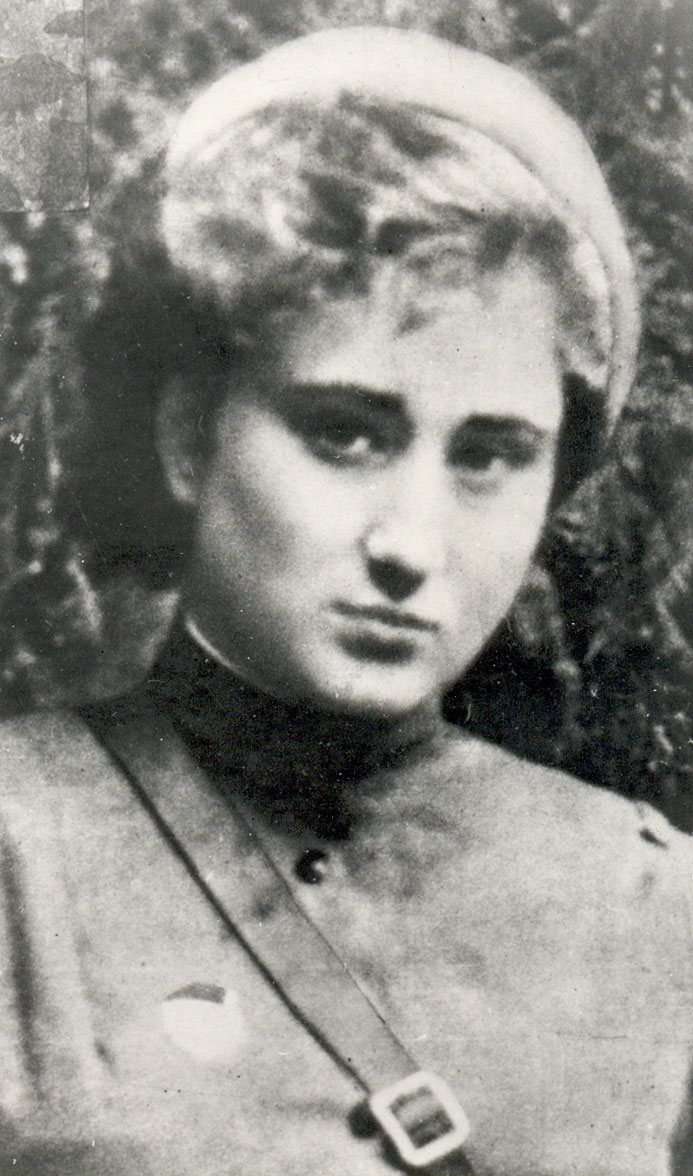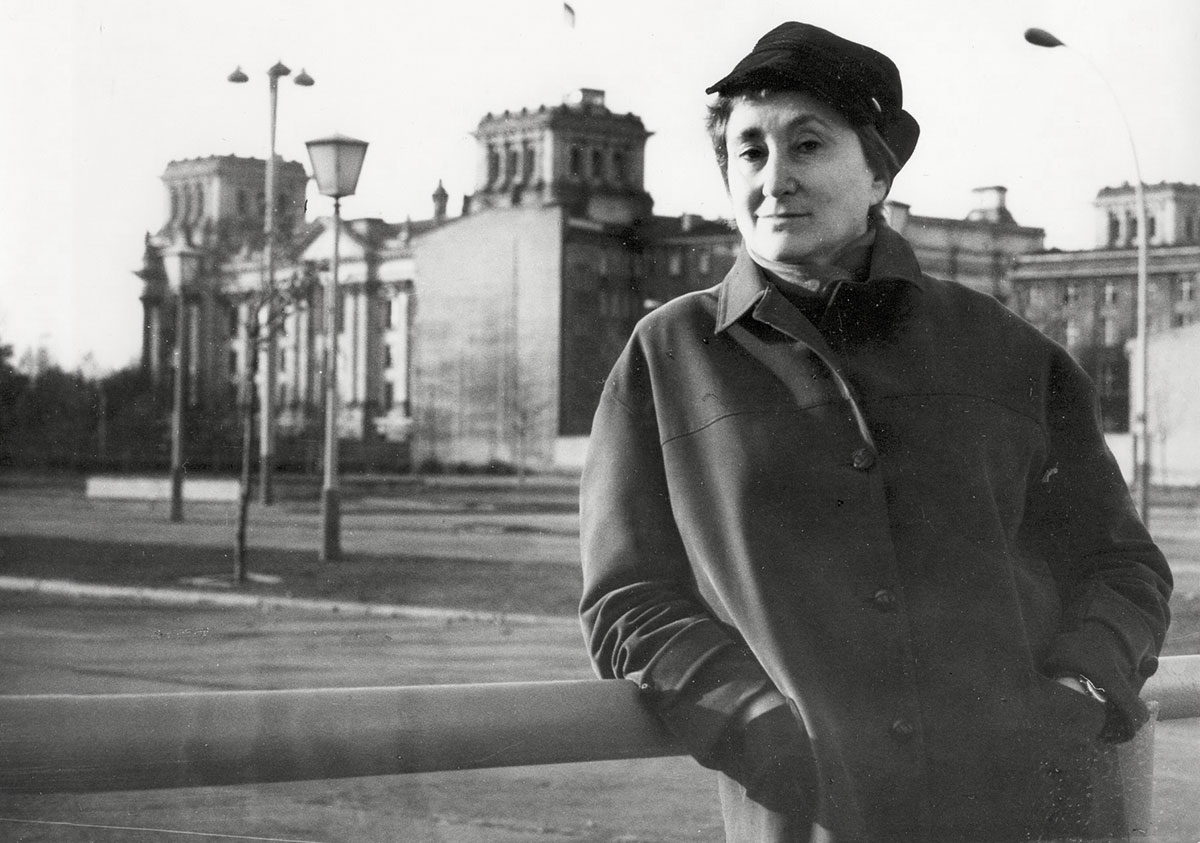Elena Rzhevskaya was born as Elena Kagan in 1919 in Gomel, Belorussia. Her father Moisei Kagan, a lawyer by education, was the scion of a successful merchant family and the chairman of the board of directors of the All-Ukrainian State Bank. Later, when the family moved to Moscow – he became a government administrative functionary. Her mother Rakhil Kagan, née Khatsrevina, was a dentist. She was the cousin of the well-known Soviet journalist Zakhar Khatsrevin, who was killed in September 1941 during the unsuccessful Soviet defense of Kiev. From 1937 to 1941 Elena Kagan studied at the Moscow Institute of Philosophy, Literature, and History (IFLI). She married Pavel Kogan, Russian-Jewish poet. Their daughter Olga was born in 1939. Pavel Kogan was killed in battle in the North Caucasus in 1942.
With the beginning of the Soviet-German war in June 1941, Elena Kagan was assigned to work in a munitions factory, but asked to be sent to the frontline. Due to her knowledge of German, she was transferred to a school for war interpreters and, in February 1942, she was attached to the HQ of the 30th Army, serving acting as an interpreter near Moscow. She saw warfare for the first time during the long and bloody Rzhev Operation of February 1942-March 1943. She was shocked by this operation, which historians have called "the Rzhev Meat-Grinder" and took Rzhevskaya as her pen-name.
At some stage, Elena Kagan (Rzhevskaia) became a translator for Soviet military reconnaissance. In this capacity, she went through Belorussia and Poland, to Berlin. In May 1945 she was a member of the small Soviet unit which, under conditions of high secrecy, was searching for Hitler in the ruins of the Reich Chancellery and succeeded in finding the remains of the Führer. She ended the war with the rank of lieutenant, having received with two military orders and several medals.
In the summer of 1945, Elena Kagan submitted a request to be demobilized from the Red Army.
After the war, Kagan-Rzhevskaya became a writer. Her first short stories on the Rzhev Operation were rejected by Soviet publisher houses as too pessimistic. Only from the early 1960s, when the Soviet cultural authorities called for a more "sincere" (i.e. truthful) representation of the war, her short stories about the war and major works were published. Rzevskaia's memoir Berlin, May 1945 was published in Russian in 1965 (the second, expanded version of 1986 was titled Berlin, May 1945: Notes of a Military Interpreter, in the English version Memories of a Wartime Interpreter). In the early 1990s, Rzhevskaya was among the first to read Goebbels' diaries; the result of this was her book Goebbels: A Portrait based on His Diary (1994).
Elena Rzhevskaya passed away on 25 April 2017 in Moscow.









